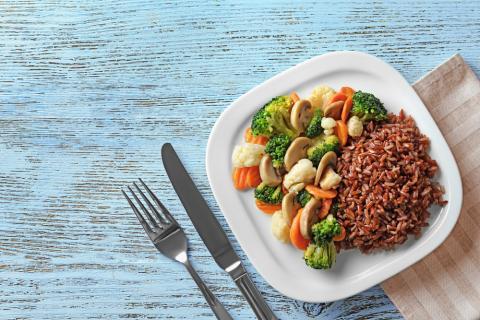
There are so many vitamins and minerals required for human beings to function happily and healthily each day, and it is easy to take these things for granted. How many automatic processes are happening in our bodies every second that we are not aware of? It is an amazing thing to think about, and—it can also be a bit overwhelming. There is so much to know!
For this reason, I am writing an entire feature simply about phosphorus in the same way that I wrote about Folate back in June—I find that learning one thing at a time often helps to absorb and retain the information, and helps me to appreciate the amazing things that vitamins and minerals do for us each and every day—not to mention the incredible function of the food that is grown each day, and that we eat regularly that helps us to stay balanced and healthy. (Plus all of the delicious recipes that we can create from this food!)
What is Phosphorus?
Phosphorus is the second-most abundant mineral in the human body, with Calcium being the first. Eighty-five percent of the phosphorus in our bodies is stored in our bones, as well as being present in muscle tissue and blood in smaller quantities.
What does Phosphorus do?
Phosphorus plays an incredibly important role as a building block for our bones and teeth, and it is also a key nutrient in helping to manage how our body stores and uses energy. Phosphorus also contributes to helping with kidney regulation, overall nerve function, maintaining a regular heartbeat, and muscle contractions, and it is a critical component for the normal function of every cell in the body. Phosphorus also contributes to good digestion, excretion, hormonal balance and proper nutrient utilization. Phosphorus and Calcium together combine to protect the bones from osteoporosis.
Phosphorous Rich Foods
The great news is that phosphorus is mainly found in the many foods that most of us eat every day, so it is not difficult to get enough phosphorus in your diet. (Additionally, we absorb small amounts of phosphorus from the water we consume each day). Foods that are high in protein are generally also excellent sources of phosphorus, including meat, poultry, fish, milk and other dairy products, eggs, nuts and seeds, and beans. So, if you are eating enough protein and calcium, you are likely getting enough phosphorus. Phosphorus can also be found in some non-protein food sources as well, such as whole grains, potatoes, garlic, dried fruit and--believe it or not—some carbonated drinks (phosphoric acid is used to produce the carbonation in these beverages).
All of that said, if you are like me, you want a specific list with specific amounts so you can be absolutely certain you can take action to get the nutrients you want to consume, and know when you are getting the most bang for your buck from each serving.
With this in mind, here is a list of the top 12 foods that are highest in phosphorus with their respective milligrams (mg) per serving. (For reference, Recommended Daily Intake is 700-1000 mg of phosphorus.)
- Sunflower seeds: ¼ cup: 369 mg
- Raw milk: 1 cup: 212 mg
- White Beans: 1 cup cooked: 202 mg
- Mung Beans: 1 cup cooked: 200 mg
- Tuna: 3 ounce can: 184 mg
- Turkey Breast: 3 ounces: 182 mg
- Grass-Fed Beef: 3 ounces: 173 mg
- Almonds: ¼ cup: 162 mg
- Brown Rice: 1 cup cooked: 150 mg
- Potatoes: 1 medium: 121 mg
- Broccoli: 1 cup cooked: 104 mg
- Eggs: 1 large: 98 mg
So, you may be pleased to know that you are probably already eating enough phosphorus—you may find that now you will start introducing these things into your diet if you haven’t already. On the quest to good eating and health, hopefully you now have further understanding of how well you serve your body and mind when you consume your favorite foods—and also ones that it may be wise to add more of from time to time.








